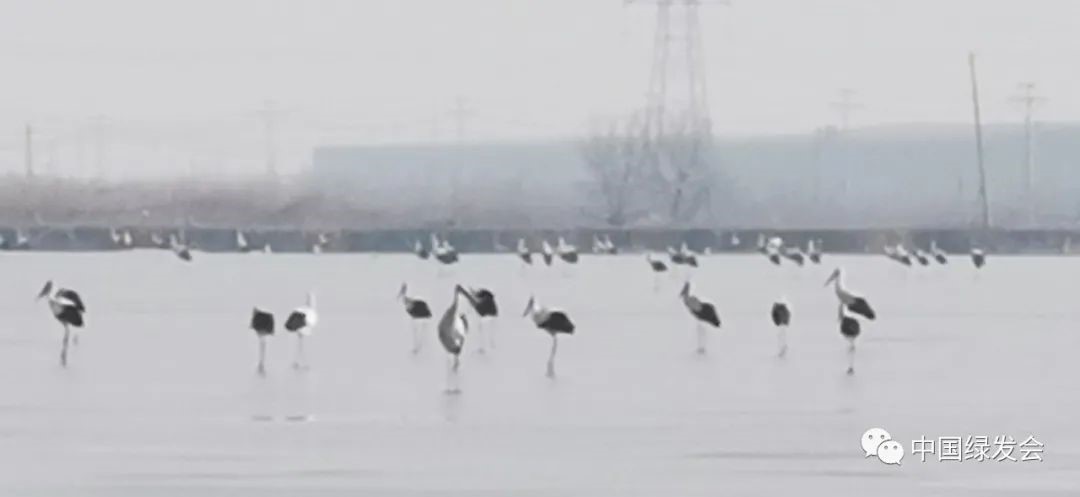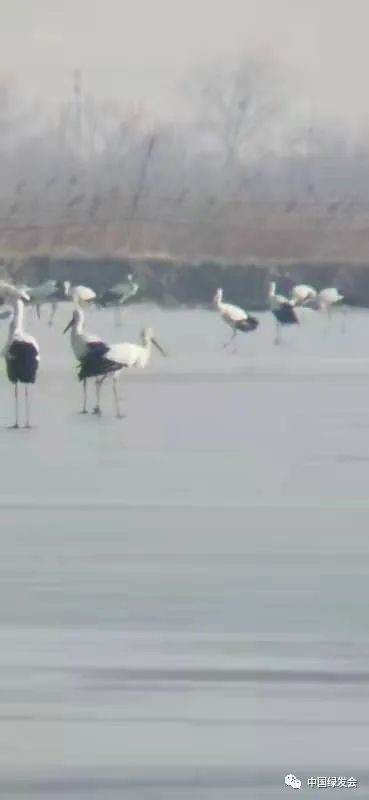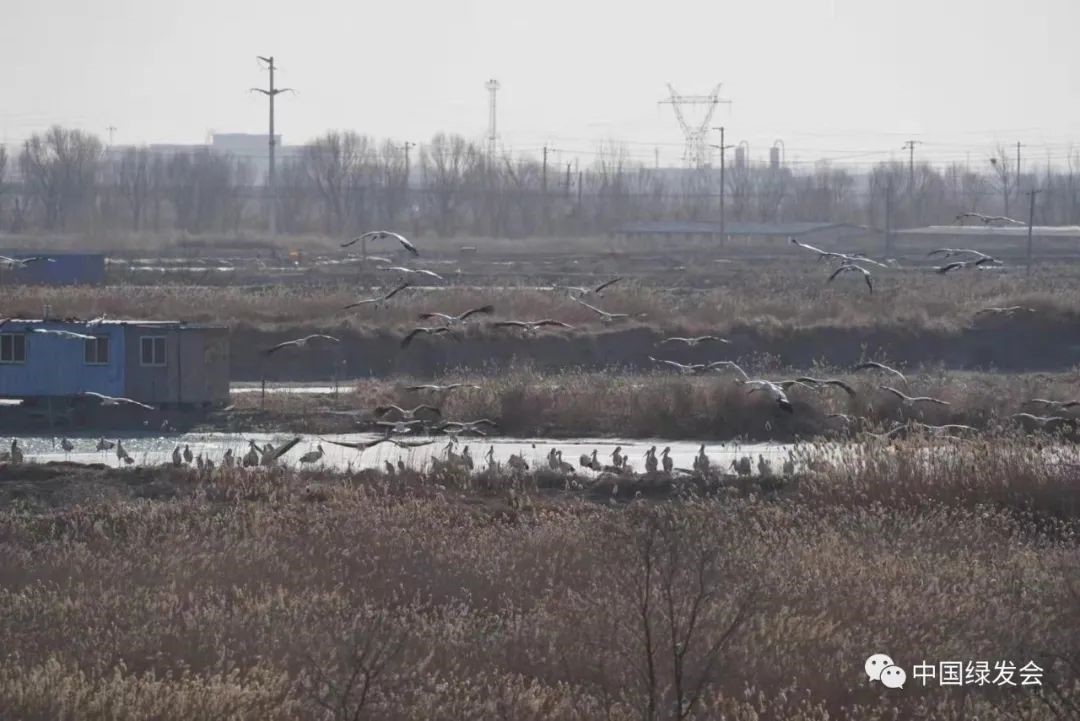On January 30, staff of the Tianjin Forestry Department and Tianjin volunteers of China Biodiversity Conservation and Green Development Foundation (CBCGDF) began to patrol a private fish pond in Jinghai District. There were still large groups of oriental white storks gathering here.

According to the volunteers who participated in the patrol that day, around 2 o'clock in the afternoon, nearly 200 Oriental white storks were still seen gathering around this fish pond. At the edge of this fish pond with an area of about 400 mu (about 266,667 sq m), these hungry oriental white storks have been staying on the ice surface or by the partly frozen pond, waiting for any opportunity to grab the fries in the pond. The local police station had once stressed to the fishpond owners that the eastern white stork cannot be driven away, let alone hurt, and thus the owners could only watch the storks eating fries.

Since entering the twelfth lunar month this winter, the CBCGDF volunteers have been observing for a long time that this group of oriental white storks still staying in Jinghai District of Tianjin is not only the same group that is also staying in the periphery of Caofeidian Wetland in Caofeidian District, Hebei Province but the last group to move south. "From field observations, most of them are weak and under nutrition. For example, outside of the Caofeidian Wetland, we once again saw one stork with an animal trap on one foot and several lame ones due to various reasons. They were basically old.” The volunteers said that the total number of this last group was about 530. A few days ago, more than 200 of them flew to this fish pond in Jinghai District in groups, and another 300 are still staying around the Caofeidian Wetland.

“They have already expended a lot of physical energy in the early stages of their migration. If they can’t replenish energy in the wetlands around the Bohai Sea, they will not have the physical strength to continue moving south.” Volunteers said. Two ring-labelled storks rescued and released by Tianjin volunteers at the end of November 2020 have safely arrived in Anhui in good condition, according to the tracking information received so far, while the stranded large group of oriental white storks is still struggling to survive in the cold wind. "According to the current situation, they will stay for as short as 10 more days or as long as 1 month, and then they will return to the north in spring," said the volunteer. However, for the fish pond owners, if the storks eat the fish like this for another month, the owners will inevitably suffer heavy losses in their harvest this year.

“Previously, the agricultural and forestry departments in the district have also received reports from volunteers, but the higher-level government departments have not introduced feasible ecological compensation methods. Therefore, for the primary-level government departments, they are still helpless and can only participate in inspections as much as possible, hoping the oriental white storks are all safe and sound." said the volunteer. After all, judging from the migration of migratory birds around the Bohai region in the past two or three years, cases and numbers of injured oriental white storks (mainly suspected of poisoning) have increased significantly, which unsettles the volunteers.

At present, in order to protect the oriental white stork, the CBCGDF volunteers in Tianjin are actively helping the relevant government departments to introduce ecological compensation measures as soon as possible. On the other hand, they also hope to see more people to help the storks survive the last stop of this year's winter.

(photos by CBCGDF volunteers)
By Xi Yang
Original Chinese article:
http://www.cbcgdf.org/NewsShow/4854/15240.html
https://www.paypal.me/CBCGDFChina
